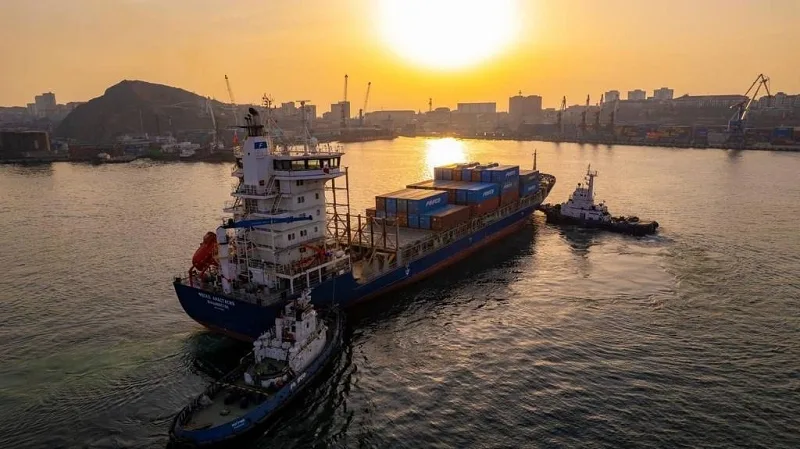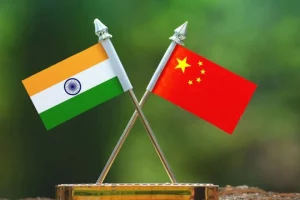FESCO, one of the largest private transport and logistics companies in Russia, has announced that it has signed an agreement with an Indian logistics group to develop maritime transportation between the two countries.
The corresponding agreement of intent was signed by Andrey Severilov, Chairman of the Board of Directors of FESCO, and Ashish Sheth, Chairman of Delhi-based Saksham group during Russia’s largest transport and logistics exhibition TransRussia in Moscow earlier this week.
The parties plan to organise direct sea services from the ports of Mundra in Gujarat and Nava Sheva in Navi Mumbai to the Black Sea port of Novorossiysk and Saint Petersburg and in the opposite direction, as well as to conduct a study of the potential cargo base between the ports of Chennai and Vladivostok for the possibility of launching a sea line on this route.
“I am sure that cooperation between FESCO and Saksham group will be another important step in the development of the Russian-Indian trade partnership, which over the past year has reached a fundamentally new level of interaction,” said Severilov.
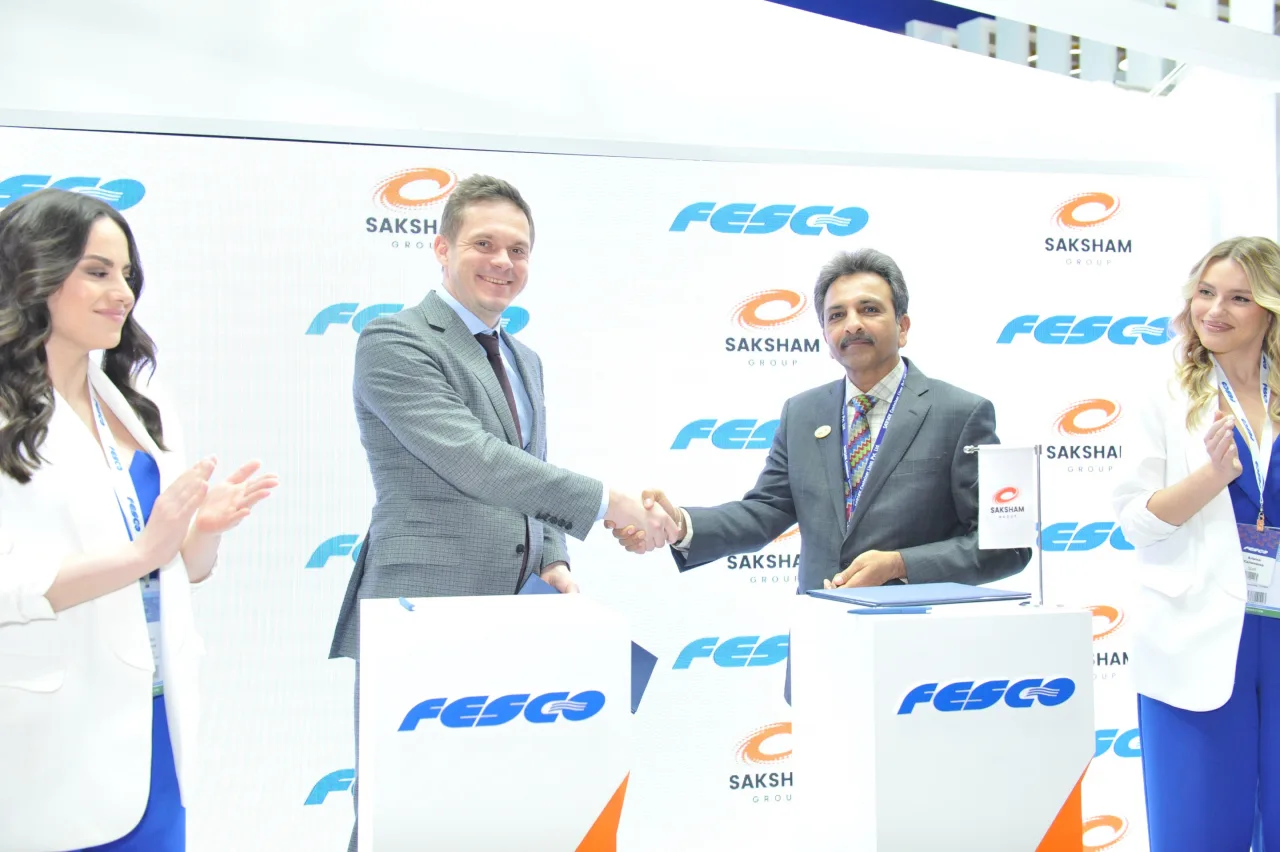
“The maritime services that we plan to launch with our Indian colleagues will create a reliable base for expanding the cargo turnover and the range of goods between our countries,” he added.
As reported by IndiaNarrative.com, FESCO recently carried out the second Antarctic expedition under a new five-year contract with the National Centre for Polar and Ocean Research (NCPOR) – India’s premier R&D institution responsible for the country’s research activities in the polar and Southern Ocean realms.
The Russian company’s icebreaker ship Vasily Golovnin completed a return journey to the South Pole earlier this month during which it delivered cargo to Indian Antarctic research stations Bharati and Maitri on the coast of Antarctica.
In the last week of March, Russia’s Minister for the Development of the Far East and the Arctic Alexei Chekunkov held extended meetings with representatives of Indian companies based in Mumbai and also met Ports, Shipping and Waterways Minister Sarbananda Sonowal.
FESCO Vice President for Linear Logistics Division German Maslov, who also accompanied the Russian delegation, spoke about the group’s intermodal services from India to Moscow, Yekaterinburg, Novosibirsk and Khabarovsk through the main ports of the country.
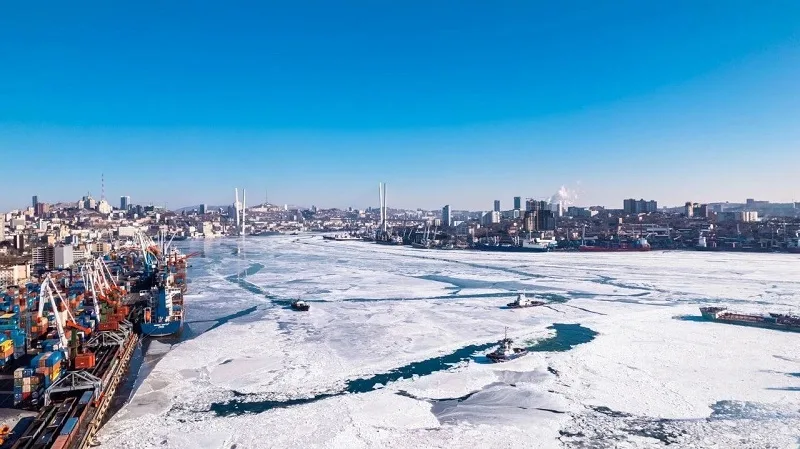
Later, in his meeting with Indian cargo owners based in Delhi, Maslov noted the growing container turnover between India and Russia and the current services between Indian ports and Vladivostok, Saint Petersburg, Kaliningrad and Novorossiysk, as well as the routes that the Group plans to launch in the near future.
On Monday, as he addressed an India-Russia Business Dialogue along with visiting Russian Deputy Prime Minister and Minister of Trade and Industry Denis Manturov in New Delhi, External Affairs Minister S Jaishankar spotlighted once again on the development of transport corridors along the India-Russia route and container traffic between Indian and Russian Far Eastern ports.
The EAM spoke on the importance of connectivity initiatives, including the International North-South Transport Corridor (INSTC) as well as the Eastern Maritime Corridor (Chennai-Vladivostok Corridor) that India believes would play a key role in expanding and diversifying the bilateral trade and economic cooperation.
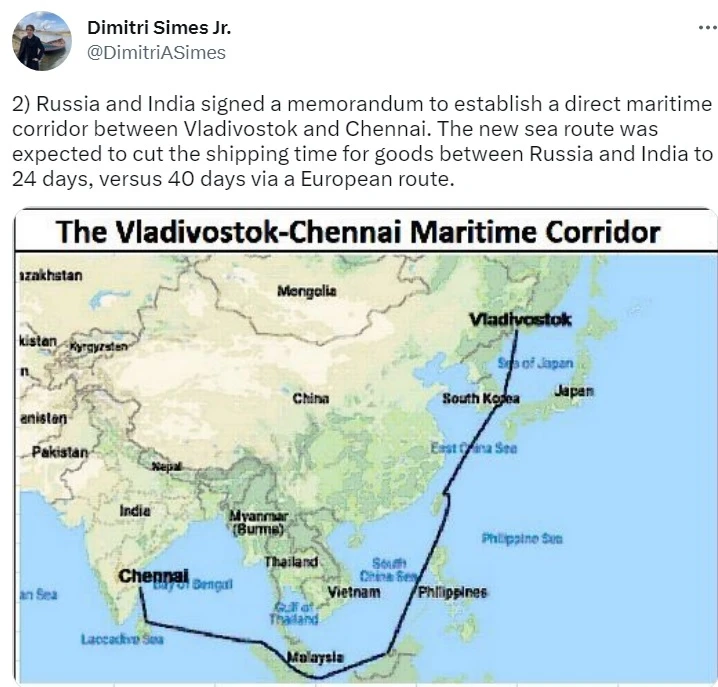
The Commercial Port of Vladivostok is the largest universal port in the Russian Far East. Its annual cargo turnover exceeds 12.9 million tons. Located on its territory, the Vladivostok railway station receives and dispatches up to 10 trains with container and general cargo per day.
“The Eastern Maritime Corridor, I think, fits in with our goal, what is called ‘Act East Policy’, as well as the Russian policy of having the Far East come in as an additional driver of the economy. So, I think there is a synergy there which is waiting to be tapped,” said Jaishankar.
Also Read: Are India and Russia negotiating Free Trade Agreement as economic ties prosper?






